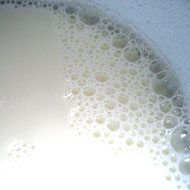
Continued milk price cuts cause anger and frustration
Retail giant Asda has dropped its price for four pints of milk to just 89p - a decision that has come as a "huge blow" to the dairy farming industry.
Responding to the news, the National Farmers Union (NFU) said it was "incredibly angry and frustrated".
Asda has dropped the prices of thousands of products as part of its "biggest rollback ever". The cuts form part of a five-year strategy to invest £1 billion in price reduction and £250 million in quality.
NFU's dairy board said: "This has a continued detrimental impact on the dairy industry by devaluing a high quality product that farmers work tirelessly to produce year round."
Dairy company Arla reduced its milk price by 2.03 pence per litre (ppl) from January 1, 2015, bringing the standard litre price down to 24.81ppl.
Following this, Dairy Crest announced price cuts of 1.2ppl for standard liquid and Davidstow contracts from February 1, 2015. The new prices will be 24.59ppl and 26.59ppl respectively.
NFU recently revealed that producer numbers have fallen below 10,000 for the first time. A total of 60 dairy farmers went out of business in November alone.
On a more positive note, Muller Wiseman has confirmed its standard milk price for February 2015 will be frozen. The company offers 25.90ppl for Muller Wiseman Group members who are not aligned to supermarket groups.
Managing director Carl Ravenhall said: "In an extremely challenging environment, Müller UK & Ireland Group is working hard to add value to milk produced by British dairy farmers...
"Given the further weakening of the value of dairy commodities and the continuing global supply and demand outlook we are unable to rule out further milk price adjustments to reflect the poor returns from cream and butter products and the need for us to remain competitive in a UK and international context.
"We share industry concerns about the short term outlook for farm gate milk prices and look forward to seeing signs of improvement in the current imbalance between supply and demand."
The NFU dairy board welcomed the news that Muller's February prices will remain unchanged but added: "This still holds the milk price at an unprofitable level".
Image Flickr/theitalianvoice/CC BY 2.0



 HMRC has invited feedback to its communications regarding the employment status of locum vets and vet nurses.
HMRC has invited feedback to its communications regarding the employment status of locum vets and vet nurses.